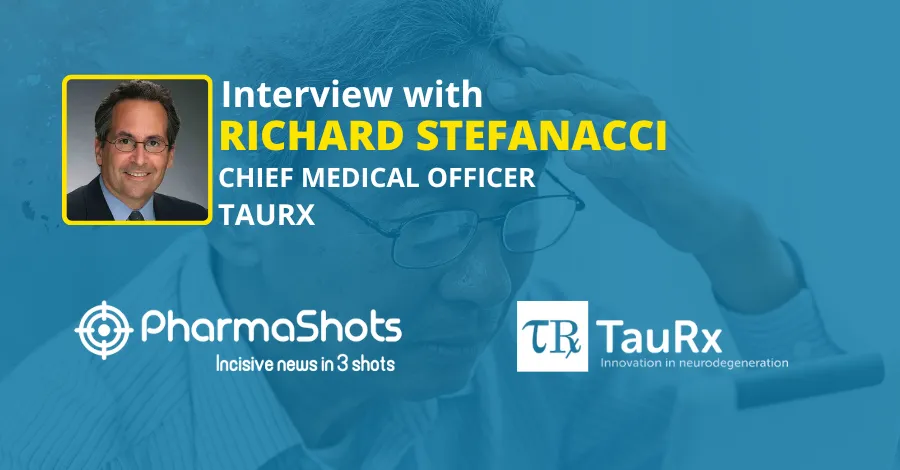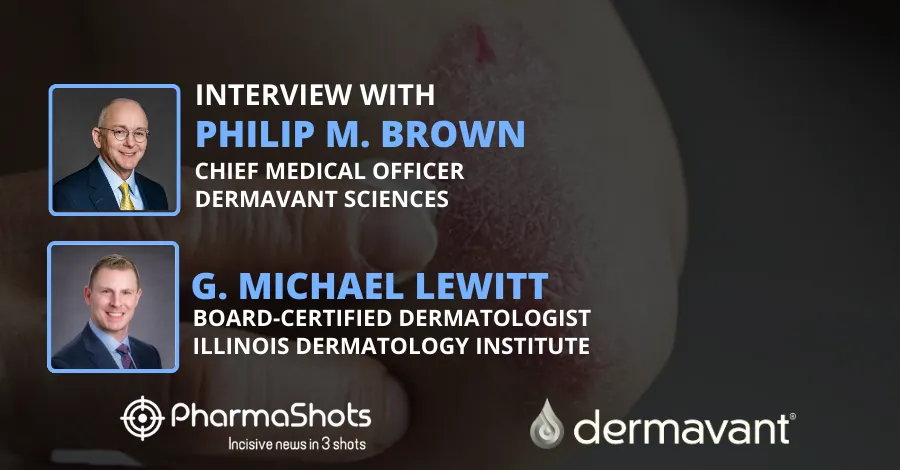
Tim Clackson, President & CEO of Theseus Pharmaceuticals, Shares Insights on its Pan-Variant Inhibitor Therapies to Treat Cancer
Shots:
- Tim spoke about the development of THE-349, a fourth-generation small molecule for the treatment of EGFR-mutant NSCLC
- Tim also talked about Thesus’ other small molecule, THE-630 in gastrointestinal stromal tumors (GIST) being evaluated in a P-I/II dose-escalation and expansion study
- The interview gives an understanding of how Thesus is developing different treatment options to resolve the issue of treatment resistance in cancer
Smriti: Tell us about cancer treatment resistance and why it’s a problem for patients.
Tim Clackson: Certain cancers have a tendency to develop mutations during a course of treatment with targeted therapy that renders cancer unresponsive to that treatment. The emergence of these mutations, called resistance mutations, during a patient’s journey can trigger an often-futile “arms race” in which the patient moves through successive lines of targeted therapy as their tumor mutates serially in response to prior treatment. Too often, a patient’s cancer can out-mutate every line of targeted therapy available until no effective treatment options remain. At that point, the cancer is free to progress unchecked, and the patient may succumb to the disease.
Smriti: Shed some light on the ‘pan-variant inhibitor’ therapeutics that Theseus is developing and how they will help in the treatment of cancer.
Tim Clackson: Theseus’ pan-variant inhibitor candidates are designed to outsmart cancer treatment resistance by precluding that “arms race.” Pan-variant inhibitors are single therapeutic agents that maintain their anti-cancer activity against a target protein in the face of any and all major classes of cancer-causing and resistance mutations. Pan-variant inhibitors simultaneously cut off all the tumor’s routes to treatment escape via that target protein, to maintain the tumor’s sensitivity to treatment.
Specifically, we at Theseus are developing therapeutic small molecules that inhibit tyrosine kinases (TKs), a class of enzymes that tend to harbor disease-driving mutations. In several cancers, researchers already have a deep understanding of the universe of resistance mutations that emerge in response to current therapies, which helps us to develop pan-variant tyrosine kinase inhibitors (TKIs). They have also determined the three-dimensional molecular structures of these TKs, so we can visualize the shape of the TK’s surface, identify binding sites for TKIs, and infer how known mutations might affect TKIs’ binding sites.
With this knowledge in hand, we can design small molecule TKIs that successfully bind to (and inhibit) a target TK in the setting of certain cancers, regardless of which disease-driving mutations the protein might harbor.
Smriti: How does Theseus develop a drug with the ability to inhibit all known resistance-causing mutations in a given type of cancer?
Tim Clackson: We develop pan-variant TKIs by iterating through rounds of structure-guided in silico molecule design and in vitro activity validation, refining the molecule at each iteration until we have optimized pan-variant TKI activity.
We first design a molecule that binds its target TK such that the molecule has many points of contact with the target. Having several points of contact allows the molecule to successfully bind and inhibit its target regardless of any known mutations the TK might harbor. In this way, if part of the molecule’s affinity for its target is inhibited by one or more emergent resistance mutation(s) at its binding site, the molecule can still bind stably to the TK through its remaining intact points of contact.
We validate the candidate molecule’s inhibitory activity against its target TK, using Theseus’ specialized Predictive Resistance Assay (PRA). The cell-based assay involves evaluating candidate molecules in a large panel of cell lines, in optimized conditions that mimic the human physiological environment. Each cell line harbors a specific resistance mutation of interest; therefore, the PRA provides a high-confidence way of assessing whether a given mutation is likely to be inhibited by the candidate molecule in patients.
Smriti: Which indications are Theseus targeting with its pan-variant inhibitors?
Tim Clackson: The first two tumor types we’re targeting are gastrointestinal stromal tumors (GIST) and non-small cell lung cancer (NSCLC), which both demonstrate great unmet needs due to treatment resistance.
GIST is the most common sarcoma of the gastrointestinal tract with an estimated 4,000 to 6,000 new cases diagnosed in the United States each year. About 80% of GIST cases are driven by activating mutations in a tyrosine kinase called KIT, and the disease remains KIT-dependent through successive lines of therapy. Patients typically receive first-line KIT-targeted therapy for GIST, but they often experience disease progression later due to the emergence of other resistance mutations in KIT, which render subsequent lines of targeted therapy significantly less effective. Current standards of care can address some, but not all, of these mutations, leaving an opportunity for GIST patients’ tumors to develop resistance to treatment.
Non-small cell lung cancer (NSCLC) is the most common form of lung cancer, accounting for approximately 85% of the estimated 2.2 million cases of lung cancer diagnosed globally in 2020. Activating mutations in EGFR occur in 10-15% of Caucasian and up to 50% of Asian NSCLC patients, with up to 90% of those mutations found in exons 19 and 21. In response to treatment, patients' tumors can develop one or more additional EGFR mutations, causing resistance and rendering current therapies ineffective.
Smriti: Describe Theseus’ lead candidate for GIST and the data that have been observed so far.
Tim Clackson: Our candidate in GIST, THE-630, is a small molecule, once-daily oral pan-variant KIT inhibitor, intended for patients whose GIST has become resistant to previous lines of targeted therapy.
Right now, THE-630 is being evaluated in a Phase 1/2 dose-escalation and expansion study (NCT05160168) in patients with previously treated GIST, which began in January of this year and continues to recruit subjects. In prior preclinical studies, the molecule demonstrated potent activity in vitro and in vivo against all major classes of activating and resistance mutations in KIT that are known to occur in the setting of GIST.
THE-630 will initially be evaluated in both the fifth line (for patients who have progressed on prior lines of therapy) and the second line (an earlier stage setting where there is the potential to interrupt the emergence of resistance mutations).
Initial data from the Phase 1 dose-escalation portion of our Phase 1/2 study are expected to be presented in the second quarter of 2023.
Smriti: When do you expect to enter the clinic with your EGFR inhibitor?
Tim Clackson: We recently nominated our second development candidate, THE-349, a fourth-generation EGFR, central nervous system- (CNS) active, and mutant-selective inhibitor with potent activity against single-, double-, and triple-mutant EGFR variants, including T790M and C797X, found in the tumors of patients with EGFR-mutant NSCLC who have developed resistance to osimertinib. Like our candidate in GIST, there is an urgent, unmet need to address the emergence of on-target resistance leading to progression on prior therapies.
We plan to submit an IND to the FDA in the second half of 2023 to bring our candidate into the clinic.
Source: Canva
About the Author:

Tim Clackson is the President and CEO of Theseus Pharmaceuticals. Tim most recently served as President and Chief Technology Officer at Xilio Therapeutics, a privately held oncology company developing tumor-selective immunotherapies, where he led the development of the company’s technology and product strategy. Tim was a postdoctoral research fellow at Genentech. He received his Ph.D. in Biology from the University of Cambridge, and his B.A. in Biochemistry from the University of Oxford. Tim serves as a director on the boards of Forma Therapeutics, Elevation Oncology, and the Massachusetts Biotechnology Council (MassBio).
Related Post: Herson Quiñones, VP at GSK Shares Insights on the FDA Approval of Benlysta for Pediatric Patients with Active Lupus Nephritis
Tags

Senior Editor at PharmaShots. She is curious and very passionate about recent updates and developments in the life sciences industry. She covers Biopharma, MedTech, and Digital health segments along with different reports at PharmaShots.













